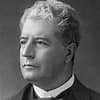
The case for always-on nuclear power has never been greater.
In the past few days, Victoria experienced a temporary power outage affecting over half a million people. This event, prompted by strong winds across the state, saw approximately 530,000 customers temporarily without power, according to AEMO. While such occurrences undoubtedly posed challenges, they also serve as opportunities for growth and improvement.
It’s essential to recognize that despite the disruptions, communities came together, demonstrating resilience and adaptability in the face of adversity. This spirit of unity highlights the strength of our society and our ability to overcome obstacles collectively.
While the recent blackouts underscore the importance of a reliable energy grid, they also emphasize the need for continued investment in sustainable and resilient infrastructure. By increasing the deployment of renewable energy technologies, coupled with strategic measures to enhance grid stability, we can mitigate future disruptions and build a more secure energy future.
It’s crucial to acknowledge the role of nuclear power in this discourse. Nuclear energy stands out as a dependable and consistent source of power, boasting a remarkable capacity factor of 92.7%, significantly higher than wind and solar alternatives. This reliability ensures a steady supply of electricity, contributing to energy security and stability.
Despite the proven benefits of nuclear energy, it’s unfortunate that it remains prohibited in Australia. As we navigate the complexities of energy policy, it’s imperative to prioritize pragmatism over complacency. By exploring all viable options, including nuclear power, we can diversify our energy portfolio and bolster resilience against potential grid failures.
In light of recent events in Victoria, it’s essential to reflect on the implications of excluding nuclear power from our energy strategy. By keeping all options on the table and embracing innovative solutions, we can safeguard against future disruptions and ensure the continued prosperity and security of our energy grid. Let’s learn from the past to shape a brighter and more resilient future for all Australians.





While nuclear power should be our first choice for an energy source, the reason for shifting away from coal is absolute rubbish!
No-one has ever proved beyond any reasonable doubt that CO2 is responsible for the “Climate Change” that some worry about.
Man-made CO2 is only a very small percentage of the total CO2 in the atmosphere, but it apparently, according to some, is the cause of our weather problems. Naturally occurring CO2 is a much larger percentage, but it doesn’t create any problems. Pull the other one, it yodels!!!!
If our gutless politicians either re-developed, refurbished or installed a couple of new coal-fired power generators, we would have a much more efficient and profitable society.
It is a joke to even consider SA or Victoria for any major defense contracts. With only renewables as a power source, SA don’t have enough electricity to make a piece of toast, and the last couple of days have shown Victoria’s weakness, and as more wind and solar come online, the worse it will get.
I haven’t had an unplanned power outage in my suburb for quite a while, we don’t have overhead power lines, they are all underground. So no stobie poles to crash into, no trees fall on our poles or wires, we just have lightweight light poles.
If all our power lines were underground not many bushfires would be caused by a tree falling on power lines. No power outages due to storms knocking over the transmission lines in my suburb.
My Power is generated by solar panels on my roof! If it ever becomes a need I will be able to run my house off either the battery of an electric car, or by my storage battery.
The reason they are not all underground is of course COST.
This is why renewables are the solution. Cost!